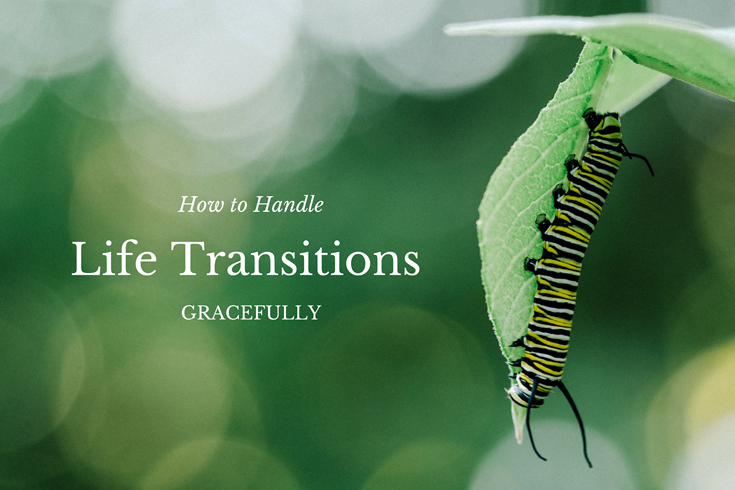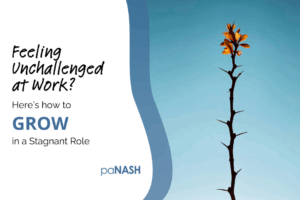“If you let it, life will take you on a grand journey beyond anything you could ever plan for. If you are receptive and open, you will be and do things far outside your current view of yourself.” Benjamin Hardy
In Benjamin Hardy’s recent article entitled How to Reach the Next Stage of Your Personal Evolution, he describes much of what my clients are currently experiencing in their lives and careers (and what I too have experienced in my own life and career). Here’s an excerpt:
How to Reach the Next Stage of Your Personal Evolution
“Every next level of your life will demand a different you.” — Leonardo DiCaprio
Life is a multiple act play. In each succeeding scene in the play of your life, you will act in different roles, have different supporting cast members, and take on new challenges.
Going from one scene to the next is a transition, involving loss and newness. Without question, change and transition are always difficult, if that change is real. It’s easy to become over-attached to a certain role you’ve played, perceiving that role as your identity. It’s painful realizing that various characters from previous scenes don’t make sense in the next scene, yet still you awkwardly try to fit them in.
If you let it, life will take you on a grand journey beyond anything you could ever plan for. If you are receptive and open, you will be and do things far outside your current view of yourself. To quote Biblo Baggins, “It’s a dangerous business, Frodo, going out your door. You step onto the road, and if you don’t keep your feet, there’s no knowing where you might be swept off to.”
The roles you will play
Lobsters are soft squishy creates that house themselves within hard shells with rigid and spiky insides. As a lobster grows, its shell becomes constraining, even suffocating and painful.
Once the lobster becomes too uncomfortable: it hides from predators under a rock, jettisons its old shell, and fashions a new one. This process repeats throughout the lobster’s life.
Each of the lobster’s shells may look drastically different from the previous one. Indeed, in its new shell, the lobster may be unrecognizable to its closest friends and even to itself.
Likewise, the various scenes in your life may demand you to be someone you never intended to be. Although you may have been timid and quiet in the previous scenes, your new situation may require you to lead and speak boldly.
Each situation is different.
In our individualized culture, we like to see ourselves devoid of a context, as though we are a self-contained entity. However, identity and meanings are housed within contexts. Take for instance the shirt you’re wearing. To you, it may be a shirt, to a baby it may be a blanket, and to a moth it may be lunch.
The relationship between things (the context) is the reality, not the things themselves.
In-between scenes (and shells)
Between each stage in your journey, you’ll go through minor — and sometimes major — identity crises. Although this isn’t necessarily enjoyable, it’s necessary and natural.
According to Identity Status Theory, before you commit to and achieve a particular identity, you’ll experience identity crisis. While experiencing identity crisis, you’re as the lobster whose outgrown its shell. You don’t quite know who you are, or what’s next.
Jeff Goins calls this phase “The In-Between,” — the tension between now and the next big thing. This in-between time is confusing and vexing. Like the naked lobster, you’ve outgrown and cast away your old shell, but haven’t found your new one yet. You feel exposed and vulnerable.
In each scene, you will feel like a child
At each new stage (or shell) in your journey, you will feel like a child. You’ll be required to learn and do new things. You’ll relearn past lessons but from new angles and with new meanings.
Continual growth demands you continuously become a child again. As a child, you will crave and seek understanding. Once you learn and adapt, you’ll likely become complacent. Thus, you’ll need to become a child again so your thirst to grow returns. In this way, you’ll never get stuck or stagnate. (Click here to read more.)
Learn to Relish Change in Life Transitions
In my work with my clients, I see these identity crises in clients of all ages. There’s no such thing as only one crisis that occurs only at mid-life. It occurs in my clients who are turning 30, 35, 40, 45, 50, 55, and so on.
One of the things I have to help them understand, as Hardy also explains, is to not only be patient in these times of uncertainty, but also to learn how to relish this time. These periods of life transitions can sometimes be the most exciting and exhilarating times of life because it’s when we finally open ourselves up to learning and trying new things. It’s when we feel most alive. Yes it can be uncomfortable, but it can also be fun if we allow it to.
If you’re currently going through a life or career transition, embrace it and let paNASH help you see the potential opportunities it can lead to. Click here to enjoy the rest of Hardy’s article.




